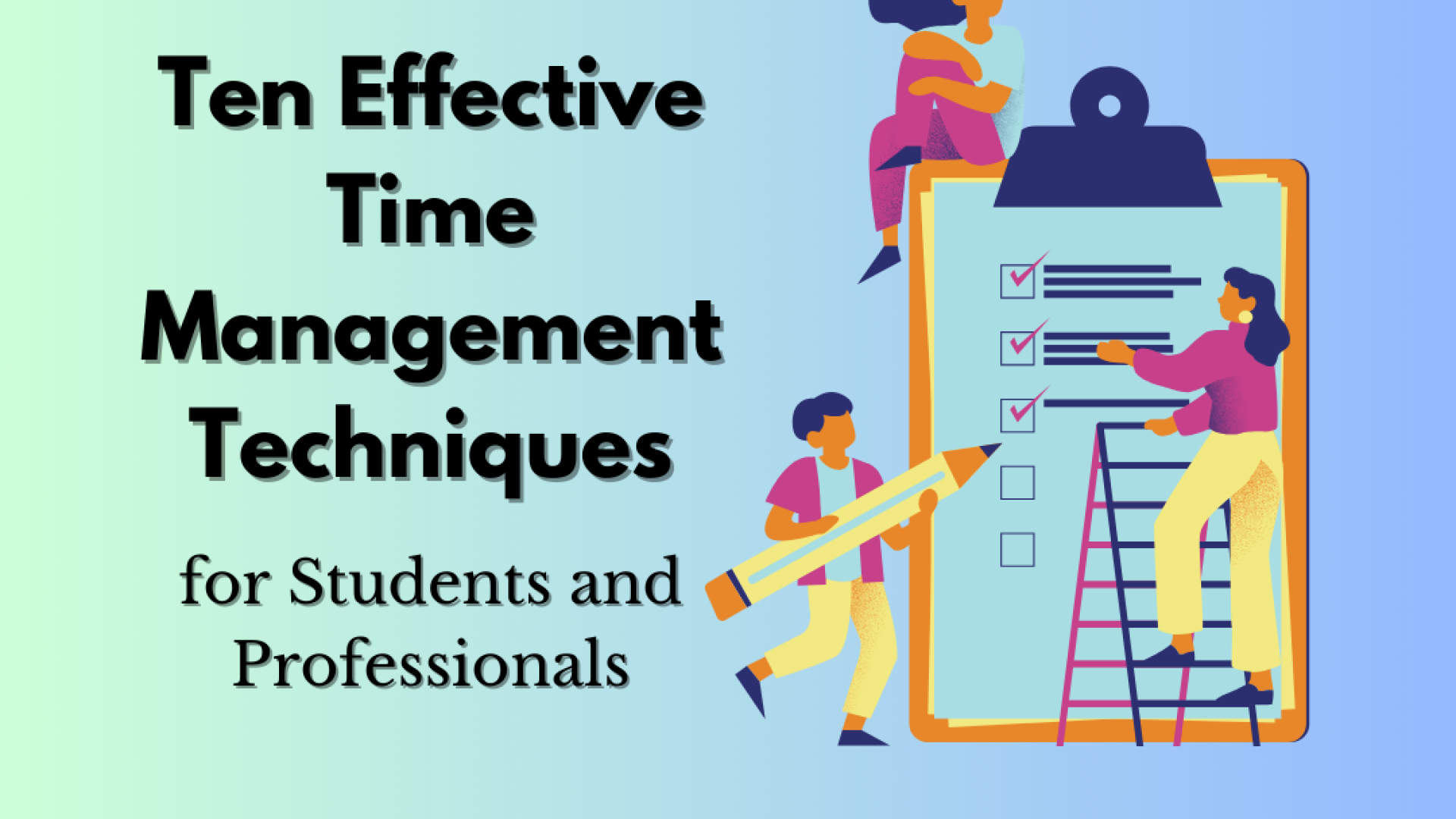10 Effective Time Management Techniques for Students and Professionals
10 Effective Time Management Techniques for Students and Professionals

Time management is a critical skill, whether you’re a student juggling assignments or a professional balancing work and personal life. Mastering time management can increase productivity, reduce stress, and create a healthier work-life balance. Here are 10 proven methods to manage your time efficiently.
1. Prioritize Tasks with the Eisenhower Matrix
The Eisenhower Matrix helps you prioritize tasks based on urgency and importance. Split your tasks into four quadrants:
-
Urgent and Important: Do these first.
-
Important but Not Urgent: Schedule for later.
-
Urgent but Not Important: Delegate if possible.
-
Not Urgent or Important: Consider eliminating these tasks.
2. Use the Pomodoro Technique
The Pomodoro Technique involves working for 25 minutes, then taking a 5-minute break. After four cycles, take a longer break of 15-30 minutes. This method keeps your mind fresh and focused.
3. Create a To-Do List
A daily to-do list helps you keep track of your tasks and ensures nothing falls through the cracks. Prioritize your list based on deadlines and importance.
4. Set SMART Goals
SMART stands for Specific, Measurable, Achievable, Relevant, and Time-bound. Setting SMART goals helps you focus on what needs to be done and track your progress effectively.
5. Avoid Multitasking
Multitasking might seem efficient, but it often leads to errors and incomplete tasks. Focus on one task at a time to ensure quality work and faster completion.
6. Use Time Management Apps
Apps like Todoist, Trello, and Notion can help you manage your tasks, set reminders, and track your progress. These tools are especially useful for staying organized and meeting deadlines.
7. Learn to Say No
Overcommitting can lead to burnout and poor time management. Learn to say no to tasks that don’t align with your goals or that you simply don’t have time for.
8. Take Regular Breaks
Taking regular breaks helps prevent burnout and keeps your mind sharp. Step away from your work for a few minutes every hour to recharge.
9. Limit Distractions
Identify what distracts you the most—social media, phone calls, or noisy environments—and take steps to minimize them. Consider using apps that block distracting websites or setting specific times to check your phone.
10. Reflect and Adjust
At the end of each day or week, reflect on what worked and what didn’t. Adjust your time management strategies accordingly to improve efficiency.
Implementing these time management techniques can help you become more productive, less stressed, and better equipped to handle the demands of both school and work. By prioritizing tasks, setting clear goals, and minimizing distractions, you can achieve a more balanced and fulfilling life.





